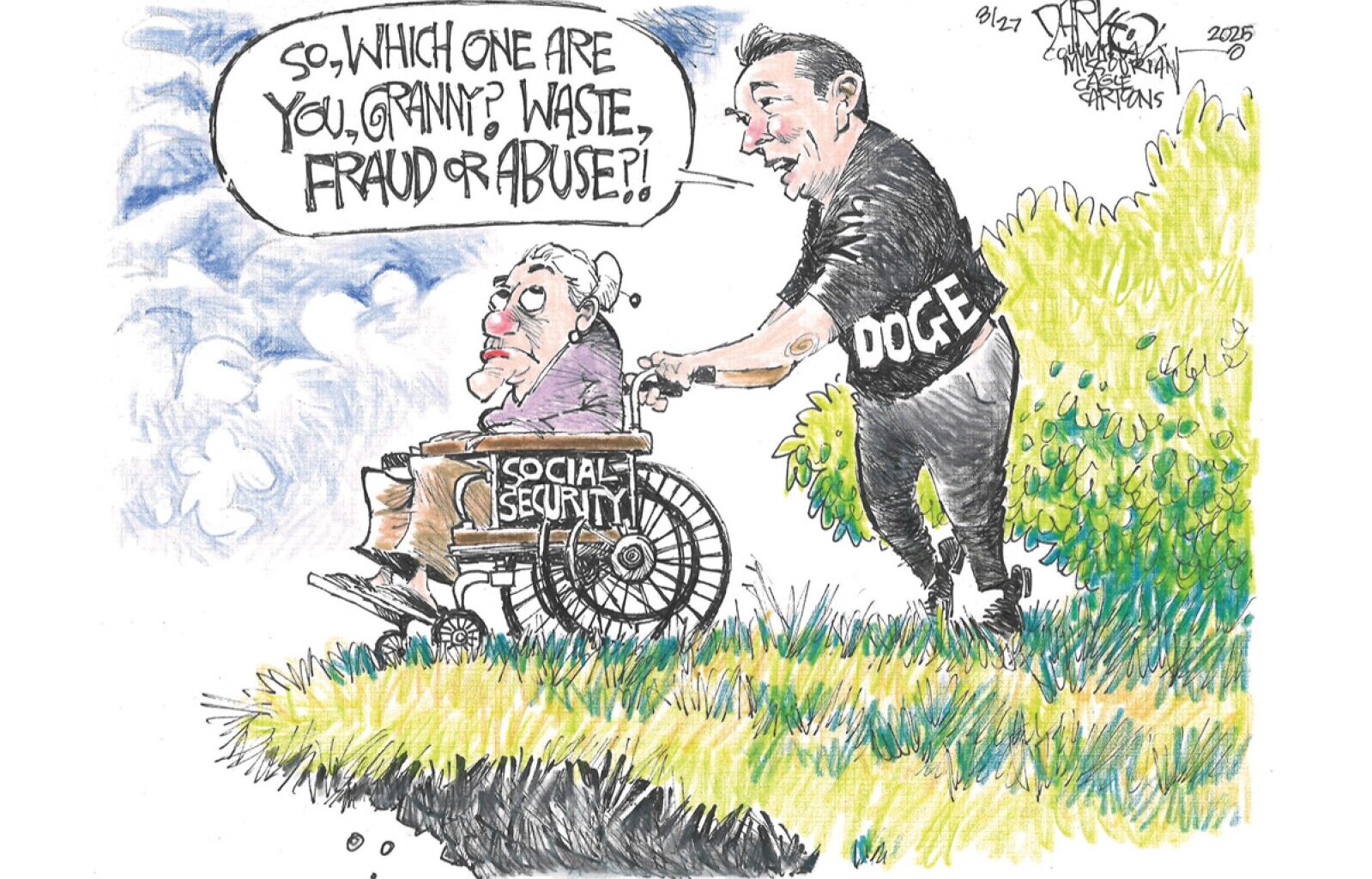Waste, fraud, and abuse. These are the seemingly magic words
incants to justify the chainsaw he’s taking to our government in the form of his Department of Government Efficiency, or DOGE. However, even with Elon Musk stepping back to a
, the question remains: Were these words a mantra or mere flimflam?
The Trump administration’s
of reducing government waste, fraud, and abuse is
among Americans, who experience the government’s bureaucracy firsthand and may not feel like their problems are addressed. Still, the face of the administration’s purported efforts to combat waste, fraud, and abuse is widely unpopular, falling to a
. Where’s the disconnect between the diagnosis and the treatment?
The answer lies in Musk’s strategy: make
that don’t minimize waste but decimate the government’s ability to preserve Americans’ safety, health, and well-being.
The
National Weather Service staff
was slashed. Scientists who
were fired, alongside scientists who
to infectious-disease outbreaks. The secretary of Veterans Affairs
massive funding cuts, ending contracts that help cover medical services, fund cancer programs, recruit doctors, and provide burial services to veterans. Is this waste, fraud, or abuse?
The real agenda came into focus in January when the president
dismissed
whose job is to uncover waste, fraud, and abuse, giving even
pause. He then
the head of the Office of Special Counsel, an ethics watchdog who protects whistleblowers, and
the Department of Justice’s Public Integrity Section. Is this about reducing waste, fraud, and abuse — or greasing the skids for those who want to profit off taxpayers?
It’s similarly troubling how quickly Musk gained power over a government that influences his business interests. For example, the National Labor Relations Board
in 2024 against Tesla’s Buffalo, New York, plant for illegally interfering with workers’ organizing. In February, DOGE stated it would
the NLRB’s Buffalo office.
DOGE has also fought for access to Americans’ most sensitive information, from
databases to
. There’s
about who accessed which systems, for what purpose, and whether cybersecurity protocols were disabled to let them in. How can Americans know their private data hasn’t been compromised or used for personal gain? Was their information used to train Musk’s
or to scope out
sensitive business strategies? We have no way of knowing.
Elon Musk has stepped away from Washington — at least
— but the Trump administration’s DOGE agenda is far bigger than one man.
Health and Human Services Secretary Robert F. Kennedy Jr. has fired countless
doctors, scientists, and experts
, and there have been
that the Food and Drug Administration plans to end routine food-safety inspections. Secretary of State Marco Rubio
that plans for reducing and restructuring his department were created under President Donald Trump’s leadership and “at my direction.”
And it’s not just the Trump administration. Congress has approved government spending cuts so ambitious that it’s unlikely they’ll be able to pass a budget that doesn’t include hundreds of billions in
. While congressional Republicans argue their proposals target waste, fraud, and abuse, in reality they will rip away health care coverage from millions of vulnerable Americans — children, the poor, and those with pre-existing conditions among them. If they genuinely wanted to eliminate fraud in the system, leaders in the Trump administration wouldn’t have
government investigators tasked with rooting it out.
Thankfully, DOGE has fallen dramatically short of Musk’s
of $1 trillion in cuts. For all the chaos DOGE has caused, its online tracker claims only
in savings during Musk’s tenure — and only around
can be verified with credible receipts. In less than six months since Musk took the reins, DOGE’s actions may also have cost taxpayers
.
Rooting out waste, fraud, and abuse is a worthy goal, but it’s not what Musk or the Trump administration are doing. They’re repeating those words to justify destroying the good parts of government — the parts people rely on to meet their basic needs and will miss dearly when they’re gone.
Ben Olinsky is senior vice president for structural reform and governance policy at the
(americanprogress.org), a liberal, public-policy research, and advocacy nonprofit in Washington, D.C.

Ben Olinsky
